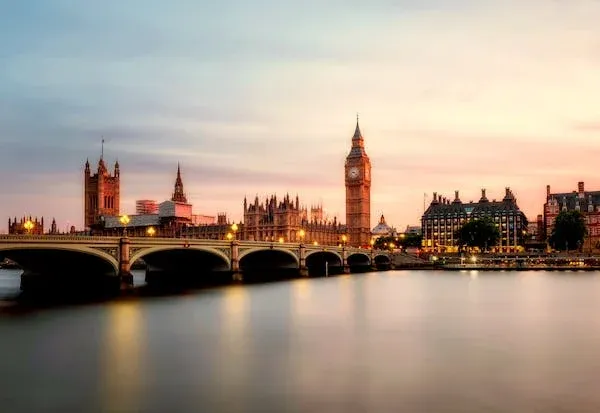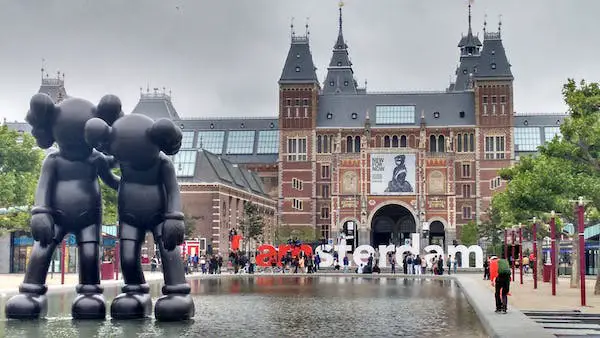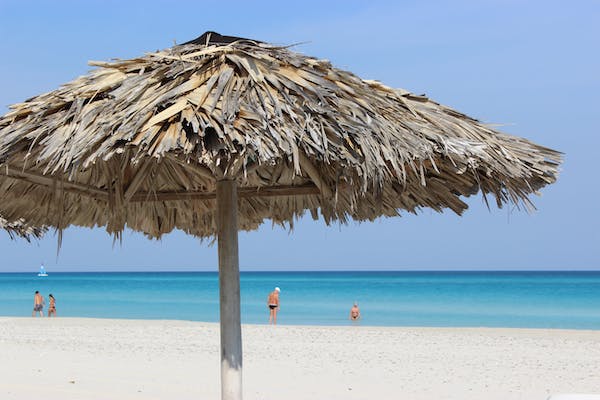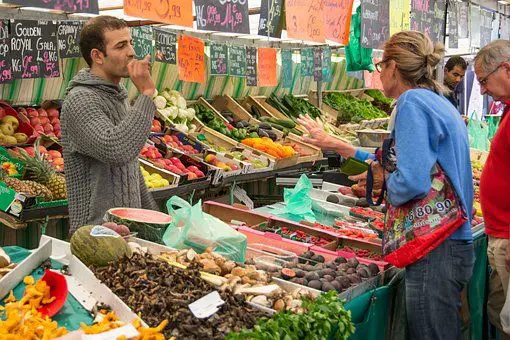How to Travel on a Budget in Europe

Europe is a continent located in the northern hemisphere, bounded by the Arctic Ocean to the north, the Atlantic Ocean to the west, and the Mediterranean Sea to the south.
It is the second smallest continent in terms of land area, but it is the third most populous continent, with over 740 million people.
Europe is known for its rich history, diverse cultures, stunning landscapes, and world-renowned art and architecture.
It is home to some of the world's most famous landmarks, including the Eiffel Tower in Paris, the Colosseum in Rome, the Big Ben in London, and the Sagrada Familia in Barcelona.
The continent is divided into 44 countries, each with its own distinct culture and language. The most visited countries in Europe are France, Spain, Italy, Germany, and the United Kingdom.

However, there are also many hidden gems in Europe that are less visited but offer a unique cultural experience.
Europe is also famous for its cuisine, which varies from country to country. French cuisine is renowned for its delicate flavors, Italian cuisine is famous for its pasta and pizza, and Spanish cuisine is known for its tapas and paella.
In addition, Europe is home to some of the world's finest wines, with France, Italy, and Spain being the top wine-producing countries.
Europe has a well-developed transportation network, including high-speed trains, buses, and airlines, making it easy to travel from one country to another. Many European cities are also bicycle-friendly, with well-marked bike lanes and bike-sharing schemes.
Europe is a diverse and fascinating continent that offers something for everyone, from stunning natural beauty to rich history and culture. Whether you're a budget traveler or a luxury traveler, Europe has plenty to offer, and it's definitely worth exploring.
Below are some tips and tricks on how to travel on a budget in Europe.
1. Plan ahead

Planning ahead is one of the most important steps to have a successful trip, no matter where you're traveling to. Here are some tips on how to plan ahead for your next trip:
- Decide on your destination: The first step in planning a trip is to decide where you want to go. Consider factors such as the season, the cost, the type of experience you want to have, and your personal interests.
- Set a budget: Once you've decided on your destination, set a budget for your trip. This should include all expenses such as flights, accommodation, transportation, food, activities, and souvenirs. Be realistic with your budget and make sure to include some extra money for unexpected expenses.
- Book your flights and accommodation in advance: Booking your flights and accommodation in advance can save you a lot of money, especially if you're traveling during peak season. Use comparison websites such as Skyscanner, Expedia, or Booking.com to find the best deals.
- Create an itinerary: Create an itinerary of the places you want to visit and the activities you want to do. This will help you make the most of your time and ensure that you don't miss any must-see attractions.
- Research local customs and culture: Researching the local customs and culture of your destination can help you avoid any cultural faux pas and show respect for the local community. It can also enhance your travel experience by giving you a better understanding of the local way of life.
- Pack smart: Make a packing list and pack smart. Consider the weather, the activities you have planned, and the cultural norms of your destination. Pack light to avoid paying extra baggage fees and make sure to leave some space in your luggage for souvenirs.
Planning ahead is essential for a successful and enjoyable trip. By deciding on your destination, setting a budget, booking in advance, creating an itinerary, researching local customs and culture, and packing smart, you can ensure that your trip goes smoothly and you have a great time.
2. Choose budget-friendly destinations

Choosing budget-friendly destinations is a great way to save money while still experiencing new cultures and exploring new places. Here are some budget-friendly destinations in Europe:
- Budapest, Hungary: Budapest is a beautiful city with stunning architecture and a rich history. It's also very affordable, with cheap accommodation, food, and activities. Some must-see attractions include the Hungarian Parliament Building, the Fisherman's Bastion, and the Széchenyi Thermal Baths.
- Krakow, Poland: Krakow is a charming city with a well-preserved old town, historic castles, and a vibrant nightlife. It's also one of the most affordable cities in Europe, with low-priced food and accommodation. Some must-see attractions include Wawel Castle, the Main Market Square, and the Jewish Quarter.
- Lisbon, Portugal: Lisbon is a picturesque city with colorful streets, stunning viewpoints, and delicious food. It's also one of the most budget-friendly cities in Western Europe, with low-priced accommodation, food, and drinks. Some must-see attractions include the Belem Tower, the Jeronimos Monastery, and the Alfama neighborhood.
- Athens, Greece: Athens is a historic city with some of the most famous landmarks in the world, including the Acropolis and the Parthenon. It's also very affordable, with cheap accommodation, food, and transportation. Some other must-see attractions include the Ancient Agora, the National Archaeological Museum, and the Plaka neighborhood.
- Krakow, Poland: Krakow is a charming city with a well-preserved old town, historic castles, and a vibrant nightlife. It's also one of the most affordable cities in Europe, with low-priced food and accommodation. Some must-see attractions include Wawel Castle, the Main Market Square, and the Jewish Quarter.
Europe has many budget-friendly destinations that offer a great travel experience without breaking the bank. By choosing destinations such as Budapest, Krakow, Lisbon, Athens, or other affordable cities, you can enjoy all that Europe has to offer while staying within your budget.
3. Travel by train or bus

Traveling by train or bus is a cost-effective way to explore Europe while also experiencing the local culture and scenery. Here are some reasons why you should consider traveling by train or bus:
- Affordability: Train and bus tickets are often cheaper than plane tickets, especially if you book in advance. You can also save money on accommodation by taking overnight trains or buses.
- Scenic routes: Train and bus routes often take you through scenic landscapes and picturesque towns that you wouldn't see from a plane. This allows you to experience the local culture and scenery up close.
- Convenience: Trains and buses run frequently and connect many cities and towns, making it easy to get around. They also offer more flexibility than planes, as you can usually change your travel plans more easily.
- Eco-friendliness: Traveling by train or bus is generally more eco-friendly than flying, as it produces less carbon emissions per passenger.
- Comfort: Trains and buses often have more legroom and space than planes, making them a more comfortable option for longer journeys. They also offer amenities such as Wi-Fi, power outlets, and refreshments.
Some popular train and bus routes in Europe include the Eurail pass, which allows unlimited travel across Europe, and the Flixbus network, which connects many European cities at affordable prices. Additionally, many countries have their own national train systems, such as France's SNCF and Italy's Trenitalia.
Traveling by train or bus in Europe can be a cost-effective and enjoyable way to explore the continent. With scenic routes, convenience, eco-friendliness, comfort, and affordability, it's worth considering for your next trip to Europe.
4. Stay in hostels

Staying in hostels is a great way to save money while traveling in Europe. Hostels offer affordable accommodation with shared facilities such as kitchens, bathrooms, and lounges. Here are some reasons why you should consider staying in hostels:
- Affordability: Hostels are usually cheaper than hotels, which makes them an attractive option for budget-conscious travelers. They offer a range of room types, from dormitory-style rooms to private rooms, which cater to different budgets.
- Social atmosphere: Hostels are often frequented by young travelers, backpackers, and students, which creates a social atmosphere. You can meet people from all over the world and share travel stories and tips.
- Central locations: Hostels are often located in the heart of the city, which makes them a convenient base for exploring. They are usually close to public transport, attractions, and nightlife.
- Facilities: Hostels offer a range of facilities such as free Wi-Fi, lockers, laundry facilities, and communal kitchens, which make your stay comfortable and convenient.
- Local knowledge: Hostel staff are usually locals who can offer valuable advice on the best places to eat, drink, and explore. They can also help you book tours and activities at discounted prices.
Some popular hostel chains in Europe include Hostelling International, YHA, and Generator Hostels. Additionally, there are many independent hostels that offer unique experiences and local charm.
Staying in hostels is a great way to save money while traveling in Europe. With affordability, social atmosphere, central locations, facilities, and local knowledge, hostels offer a comfortable and convenient base for exploring the continent.
5. Eat like a local

Eating like a local is not only a great way to save money while traveling in Europe, but it also allows you to experience the local culture and cuisine. Here are some tips for eating like a local in Europe:
- Go to local markets: Local markets are a great place to find fresh and affordable produce, meat, and cheese. They also offer a variety of street food options that are both delicious and budget-friendly.
- Avoid tourist areas: Eating in tourist areas can be expensive and often lacks authenticity. Instead, venture to neighborhoods where locals eat and discover hidden gems.
- Eat street food: Street food is not only delicious but also affordable. It’s a great way to taste local flavors and experience the culture.
- Embrace the local cuisine: Trying local dishes is a must when traveling in Europe. Not only is it a great way to experience the culture, but it’s also often cheaper than eating international cuisine.
- Eat during lunchtime: In many European countries, lunch is the main meal of the day and is often cheaper than dinner. Take advantage of lunch deals and try local specialties.
- Visit local bakeries: Local bakeries offer a variety of pastries, bread, and cakes that are both delicious and affordable. They also offer a glimpse into local food culture.
- Cook your own meals: If you’re staying in a hostel or Airbnb, cooking your own meals is a great way to save money. Buy local produce and cook simple dishes that allow the ingredients to shine.
By eating like a local, you not only save money but also have a more authentic and memorable travel experience. So, be adventurous and try new things. You never know what local delicacies you might discover.
6. Take advantage of free activities

Taking advantage of free activities is a great way to save money while traveling in Europe. Europe offers a variety of free activities that allow you to experience the local culture, history, and nature. Here are some tips for finding and enjoying free activities in Europe:
- Visit free museums and galleries: Many museums and galleries offer free admission on certain days or times. Take advantage of these opportunities to explore the local art and history.
- Walk and hike: Walking and hiking are free and a great way to explore cities, countryside, and nature. Most cities have free walking tours that offer a great way to discover the city's hidden gems.
- Attend free festivals and events: Europe offers a variety of free festivals and events throughout the year. From music festivals to food festivals, there's something for everyone.
- Visit parks and gardens: Parks and gardens are a great place to relax and enjoy the local nature. Most cities have public parks that offer free admission.
- Explore historic sites: Europe is rich in history and architecture, and many historic sites offer free admission. Explore castles, ruins, and churches that offer a glimpse into the country's past.
- Attend free concerts and performances: Many cities offer free concerts and performances in public spaces, such as parks and squares. Keep an eye out for posters and flyers for upcoming events.
- Visit local markets: Local markets offer a glimpse into the local culture and often have free samples of food and drinks.
By taking advantage of free activities, you not only save money but also have a more authentic and immersive travel experience. So, research the local events and activities in advance, and plan your itinerary accordingly. You never know what hidden gems you might discover.
7. Use travel apps

Using travel apps can make your travel experience in Europe more efficient, convenient, and budget-friendly. Here are some must-have travel apps for traveling in Europe:
- Google Maps: Google Maps is an essential app for navigating and finding your way around the city. It provides real-time traffic updates, directions, and information on public transport options.
- Booking.com: Booking.com is a popular app for booking affordable accommodation, including hotels, hostels, and apartments. It offers discounts and deals, and you can compare prices from different properties.
- Airbnb: Airbnb is a great app for finding affordable and unique accommodation options. It offers a variety of apartments, houses, and rooms for rent, and you can filter your search by price, location, and amenities.
- Skyscanner: Skyscanner is a flight search engine that helps you find the cheapest flights to your destination. You can set up price alerts, compare prices from different airlines, and book your tickets directly from the app.
- Rome2rio: Rome2rio is a transport search engine that helps you find the best way to get from point A to point B. It provides information on flights, trains, buses, ferries, and car rental options, and you can compare prices and travel times.
- TripIt: TripIt is a travel itinerary app that helps you organize your travel plans. You can forward your flight, hotel, and activity confirmations to the app, and it will create a detailed itinerary for you.
- XE Currency: XE Currency is a currency exchange app that helps you keep track of exchange rates and convert currencies. It’s a great app for budgeting and planning your expenses.
By using these travel apps, you can save time and money, and have a more enjoyable travel experience in Europe. So, download these apps before your trip, and make the most of your travel experience.
Conclusion
Traveling on a budget in Europe may seem daunting, but with some careful planning and smart choices, it is possible to have an enjoyable and affordable trip.
From choosing budget-friendly destinations and accommodations to using travel apps and taking advantage of free activities, there are many ways to save money while exploring Europe's rich culture, history, and natural beauty.
It's important to remember that traveling on a budget doesn't mean sacrificing the quality of your travel experience. In fact, by being mindful of your spending and making smart choices, you can have a more authentic and immersive travel experience that connects you with the local culture and people.
So, whether you're planning a backpacking trip or a family vacation, use these tips and strategies to create a memorable and budget-friendly travel experience in Europe. And remember, the memories and experiences you gain from travel are worth more than any amount of money.
